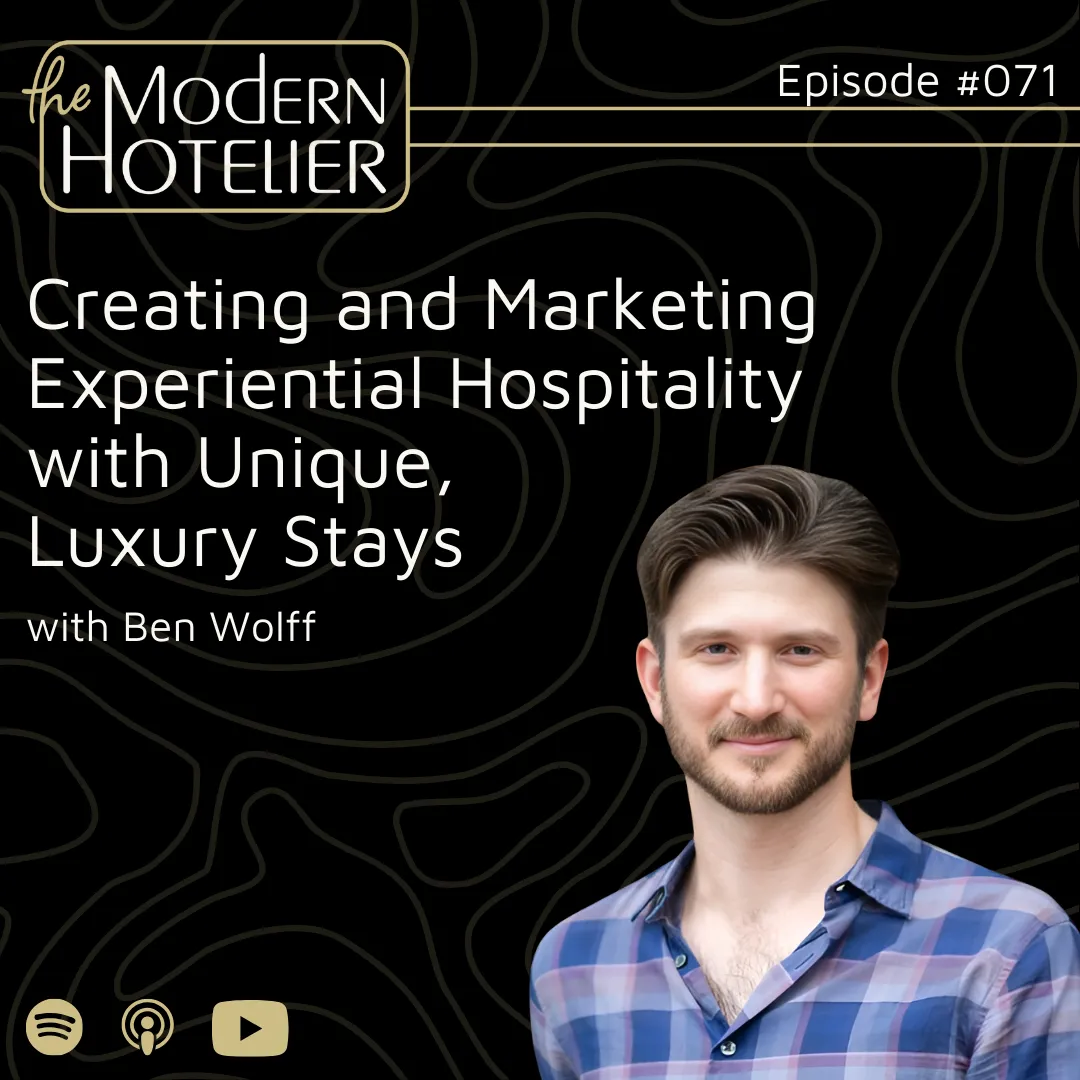Providing next-level experiences is more important than ever in the Hospitality Industry.
In this episode, we focus on experiential hospitality and unique stays with Ben Wolff. Ben is co-founder and developer of Onera, a luxury treehouse resort in Texas Hill Country. His experiential hospitality firm Oasi develops and manages a portfolio of landscape resorts, boutique hotels, and luxury retreats.
Onera’s first location sold to Summit Hotel REIT in 2022, representing the first public REIT exit of a glamping resort. Ben is leading Onera’s $35M expansion across 50 keys and two locations in the Texas Hill Country to be completed by Q2 2025. Prior to Onera, Ben grew Blink Hospitality a short-term rental management company from 8 to 200 units under management in less than two years.
In this episode, you'll learn (key points/topics covered):
- The journey of building and developing an experiential hospitality firm
- The vision behind creating unique luxury retreats and stays.
- What the modern traveler wants
- The value of a collaborative customer experience vs. the traditional transactional experience.
- What it means to focus on the experience
- How to market alternative and unique stays
- Why you need to make your property shareable
- Why Instagram will be the biggest booking platform by 2030
Join the conversation on today's episode on The Modern Hotelier LinkedIn page.
The Modern Hotelier is produced, edited, and published by Make More Media: https://makemore.media/
Episode Links
Ben Wolff
David Millili
Steve Carran
Steve on LinkedIn
The Modern Hotelier
Transcript
Automatic Transcription - please excuse any errors

